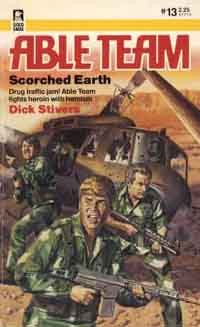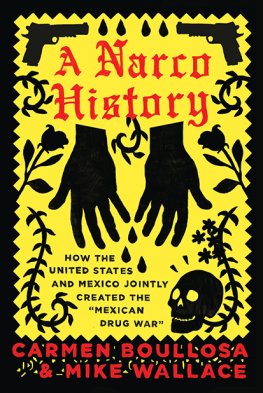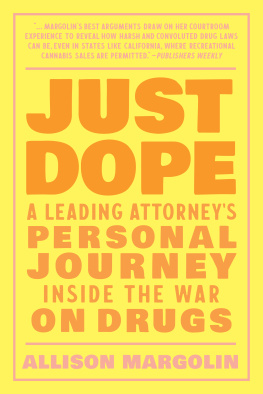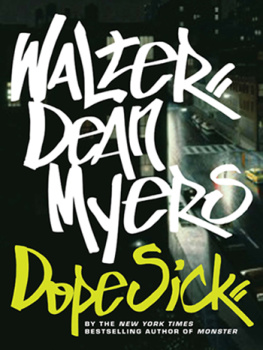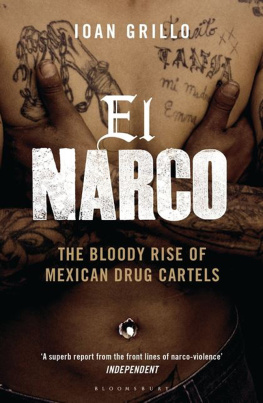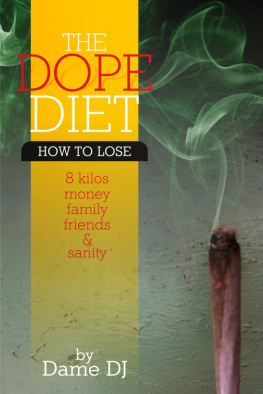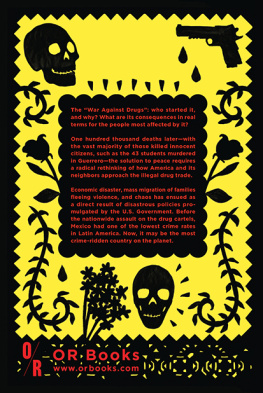Benjamin T. Smith - The Dope: The Real History of the Mexican Drug Trade
Here you can read online Benjamin T. Smith - The Dope: The Real History of the Mexican Drug Trade full text of the book (entire story) in english for free. Download pdf and epub, get meaning, cover and reviews about this ebook. year: 2021, publisher: W. W. Norton, genre: Politics. Description of the work, (preface) as well as reviews are available. Best literature library LitArk.com created for fans of good reading and offers a wide selection of genres:
Romance novel
Science fiction
Adventure
Detective
Science
History
Home and family
Prose
Art
Politics
Computer
Non-fiction
Religion
Business
Children
Humor
Choose a favorite category and find really read worthwhile books. Enjoy immersion in the world of imagination, feel the emotions of the characters or learn something new for yourself, make an fascinating discovery.
- Book:The Dope: The Real History of the Mexican Drug Trade
- Author:
- Publisher:W. W. Norton
- Genre:
- Year:2021
- Rating:5 / 5
- Favourites:Add to favourites
- Your mark:
- 100
- 1
- 2
- 3
- 4
- 5
The Dope: The Real History of the Mexican Drug Trade: summary, description and annotation
We offer to read an annotation, description, summary or preface (depends on what the author of the book "The Dope: The Real History of the Mexican Drug Trade" wrote himself). If you haven't found the necessary information about the book — write in the comments, we will try to find it.
The Dope: The Real History of the Mexican Drug Trade — read online for free the complete book (whole text) full work
Below is the text of the book, divided by pages. System saving the place of the last page read, allows you to conveniently read the book "The Dope: The Real History of the Mexican Drug Trade" online for free, without having to search again every time where you left off. Put a bookmark, and you can go to the page where you finished reading at any time.
Font size:
Interval:
Bookmark:

THE
DOPE

The
Real History
of the Mexican
Drug Trade

BENJAMIN T.
SMITH

To my mum and dad, thank you.
And to Ernest, who always knew how to tell a good story.
People see what they want to see and what people want to see never has anything to do with the truth.
Roberto Bolao, 2666
Hago siempre lo que quiero Y mi palabra es la ley | I do what I want And my word is the law |
Jos Alfredo Jimnez, El Rey
La verdad nunca se sup, Nadie los fue a reclamar. | The truth was never known, No one came to reclaim them. |
Paulino Vargas, La Banda del Carro Rojo
CONTENTS

BNDD | Bureau of Narcotics and Dangerous Drugs |
DEA | Drug Enforcement Administration |
DFS | Ministry of Federal Security (Mexico) |
FBN | Federal Bureau of Narcotics |
ICE | Immigration and Customs Enforcement |
PAN | National Action Party |
PGR | Attorney Generals Office (Mexico) |
PJF | Federal Judicial Police (Mexico) |
PRI | Institutional Revolutionary Party |
S PANISH NAMES COMPRISE FIRST NAMES (E.G. JOA qun) and then two surnames (e.g. Guzmn Loera). The first surname is the name of the father (Guzmn) and the second surname is the name of the mother (Loera). Normally to reduce repitition, writers use simply the first surname to refer to the person in question. However, occasionally with certain common surnames, both first and second surnames are used (President vila Camacho, the trafficker Caro Quintero). Just to confuse matters, because traffickers usually live in the shadows, sometimes we have confirmation of only their first surname and not their second.
Finally, the world of Mexican drug trafficking is rich in evocative nicknames. However, unless they are short for proper names or infamous on their own, such as El Chapo, I have translated them into English.
THE DOPE
C RUZ NEVER WANTED TO BE IN THE NARCOTICS BUSI ness. But he had little choice. The youngest of eleven children, he was born in Carcuaro in 1989. Once the base for Mexicos nineteenth-century Independence army, now the small, nondescript village in the Michoacn hot lands boasted few opportunities. Most villagers produced agricultural goods for the local market orif they could afford to pay for passagemigrated north to find work. It was one of the poorest townships in one of Mexicos poorest states. Four in every five families lived in poverty. Cruzs family was one of them. We didnt have a TV or a car or anything. We just had a house with a dirt floor and that was only because my father left to be with his other woman.
Cruzs hometown, however, did have one advantage. It lay on a beautiful, winding road that ran up from Mexicos west coast to the center of the country and from there to the United States. By the mid-1990s the road was a major drug highway.
Cruz learned the business young. Five of his brothers drove narcotics from the coast to the state capital of Morelia. So did three of his brothers-in-law and all his cousins. They were all involved. I didnt know anyone who wasnt. But no one said anything. It was just a job. Even his mother was drawn in. She stored guns and narcotics in a wooden hut overlooking the small ranch on which they all lived. And when Cruz was seven years old he also started to work as a halcn, or lookout, for the stash.
In his decade in the drug business, Cruz demonstrated a singular lack of ambition. As his brothers moved up the hierarchy from transporters to gunmen to local chiefs, they often mocked their shy, diminutive sibling. But Cruz didnt mind. He liked being a lookout. The job allowed him to wander the stunning, rolling landscape above his ranch. It allowed him to look after his ageing mother. He also showed a complete lack of interest in experimenting with any of the drugs. He never opened the packages, never looked inside, and certainly never used them. They were for the gringos.
He did, however, notice that the mercancia the merchandisechanged. At first, in the mid-1990s, it was cocaine. When I first started, my brothers used to bring in loads of perico [parakeet, but also the slang term for cocaine]. It was wrapped tightly in cellophane packets with names and numbers on the side. No one ever told me what they meant and I never asked. Then by the end of the decade, his brothers also brought in weed. Marijuana was Cruzs least favorite narcotic. I had to carry it up to the hill to the hut in these massive sacks. It was so heavy... and it stank. Then, at the turn of the century there was another change. It was all hielo [ice, or methamphetamine] and chiva [goat, or heroin]. They said it all came from down the mountains around Zihuatanejo and Petatln.
He also observed the changes in the trades local protection rackets. At first, it was the state cops who were in charge. When Cruz was just a child, they would come up to the ranch, sling a few packages of cocaine into a squad car, and then drive back to the state capital. [A local politician] even came once. He wanted to thank my brothers for their work. But by the turn of the century it was traffickers themselves. When the Zetas came, they demanded that we work for them now. If you didnt, they just killed you. Just like that.
Violence accompanied these changes in the protection rackets. In just three years two of Cruzs brothers and four of his cousins were killed; another brother disappeared together with one of his brothers-in-law. The genealogy he sketched looked like a family tree from the plague years.
At this point, Cruzs mother decided that she needed to protect at least one of her children. So in October 2007, she put Cruz on a bus to Morelia. From there he took another bus to Tijuana where he had the address of more family. Eventually, in early 2008, he managed to cross to the United States and lived with extended family in the Northwest. He got married, had three children, and started to work picking fruit. He was safe for a time.
In 2018, Immigration and Customs Enforcement (ICE) agents raided Cruzs place of work in Middleton, Idaho. They bused him four hours to the nearest detention facilities in Weber County, Utah. It was here, as he awaited deportation, that I first spoke to him. His lawyer had asked me to work pro bono as an expert witness in his case.
Talking to Cruz on the crackly detention center phone line, he seemed quiet and thoughtful. He was devoted to his wife and kids, and scared about the future. He feared that if he was returned, the government officials and cartel hitmen that had wiped out half his family would come after him.
In the end he was right to be afraid. After a decade of watching Americas changing narcotics needs, he now witnessed its grinding mechanisms of narcotics prevention. ICE lawyers used Cruzs testimony to portray the slight, nervous farmhand as a hardened narcoa violent psychopath bent on feeding drugs to Americas vulnerable youths. They knocked his claims of forced recruitment, questioned his tale of family tragedy, and intimated that he had actually come north to sell drugs. They were playing on a set of common assumptions and stereotypes. It was enough to persuade the judge. Two months after the hearing, Cruz was put on a plane back to Mexico.
Next pageFont size:
Interval:
Bookmark:
Similar books «The Dope: The Real History of the Mexican Drug Trade»
Look at similar books to The Dope: The Real History of the Mexican Drug Trade. We have selected literature similar in name and meaning in the hope of providing readers with more options to find new, interesting, not yet read works.
Discussion, reviews of the book The Dope: The Real History of the Mexican Drug Trade and just readers' own opinions. Leave your comments, write what you think about the work, its meaning or the main characters. Specify what exactly you liked and what you didn't like, and why you think so.


